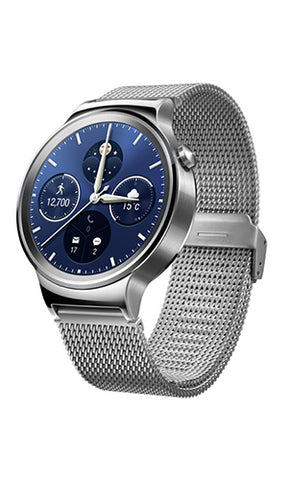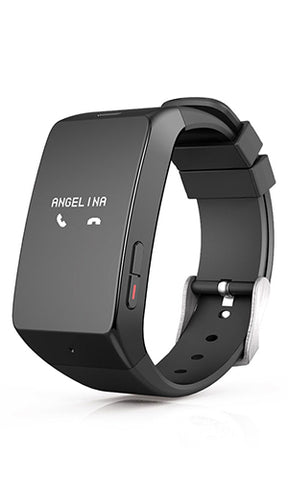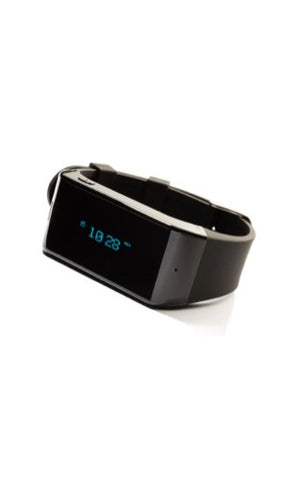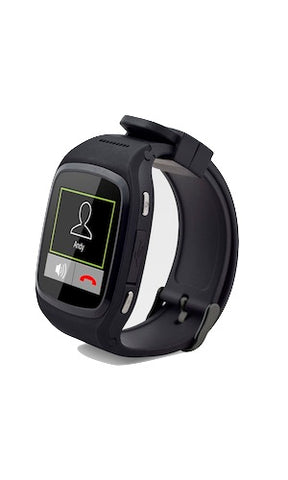When data gets dark: Why one cyclist quit the quantified self
Written By
Andrew Tilin
Shortly after my flesh recently met pavement, I had an epiphany about today’s notion of the quantified self. I’ve been a believer in self-quantifying, or what is largely employing technology’s ever-expanding ability to help us track our states of being, for nearly a quarter-century. In the name of realizing greater personal potential, I’ve enthusiastically tracked my sleep and diet, and my time spent crouched over a laptop as well as while meditating. But in the days, weeks, and months last spring after my left hip hit the road during a bike race at 29.3 miles per hour — one of multiple metrics logged on my bike computer just before it sensed no movement whatsoever — I had a different sort of revelation.
I came to the conclusion that the quantified self, which in today’s booming wearables era means more and more to a rapidly growing audience, has become bloated.
Ravenous for more metrics
Up until my crash (the good news: hip bruised, not broken), and like many other people, the desire to gather metrics about my own state of being has, over the last five years, approached insatiable. There’s so much information available to mine, via accelerometers on our wrists (fitness trackers), GPS-technology in our pockets (smartphones), and databases in the thin air (the Cloud). We can consistently review the quality of our sleep, the calories in our diets coming from fat, carbs, or protein, and the regularity with which we turn away from our work in exchange for some fresh air.
The quantified self, a term reportedly popularized by a Wired writer in 2007 but arguably as old as the ancient Olympic Games or any phenomenon that might drive humans to explore their capabilities, is nowadays a commanding biological dashboard available to just about anyone willing to invest a few hundred dollars into personal electronics. In deeply measuring our states of activity, being, and behavior, the argument goes, all of this self-quantification allows us to know ourselves better.
Or does it?
Trust yourself, not your smartwatch
In terms of quantifying myself, I’d come a long way since the days of using a kitchen timer to lengthen meditation sessions, and a Univac-style heart-rate monitor to log running performance. In the last couple years I’ve tracked every watt generated while riding my bicycle, and via app come face to face with the nutritional blunder that is late-night chocolate bingeing. (That candy bar was six hundred calories?!?) When I’d get only four hours of sleep ahead of a scheduled morning workout or a big day at the desk, the dismal figure and lousy sleep quality would, courtesy of my on-wrist technology, stare me in the eye, like I was a kid sobered by the “F” written atop his midterm.
You might also like: What happens when you give the Average Joe an Apple Watch
But the bike crash put a different and surprisingly enduring tint on my relationship with all of these me-metrics. Even during an initial confinement courtesy of crutches and pain meds, my analog world started to expand. Forced to rest, I didn’t need a silicon chip to tell me I was enjoying ample sleep. With much of my body still craving movement, I simply rose regularly from the couch and limped into the sunshine. I stopped eating so much chocolate — because I obviously wasn’t burning so many calories. My sensibilities changed from within. I felt like I could lean more on myself; rely on my who-able instead of a wearable.
Of course, during my temporary and unavoidable lifestyle change, there was also anxiousness — picture a fitness geek fretting over the erosion of his hard-won exercise numbers. However, within a few weeks, I was back on my bike and in running shoes. And still, now even months, later my quantified-self numbers frequently go less checked. Soon after awakening, I know if I’ve gotten solid sleep. I trust my senses in terms of getting sufficient exercise. When I catch myself slouching at my desk, I straighten, and sometimes stand up and take a walk.
Distancing from the data
So while one could argue that common sense can and maybe should replace some self-quantification, there’s more to my change of thinking. Self-quantification is also more data. Today we’ve got data the way we’ve got climate change — in sphincter-tightening amounts. Email: out of control. Twitter account: needs endless love. According to Time magazine, the world generates 2.5 quintillion bytes daily, a comic-book-type (add 18 zeroes) figure generated courtesy of humanity doing things like uploading 300 hours of fresh video to YouTube with each minute that passes.
ICYMI: The Death Watch: How the Apple Watch will move from fashion piece to healthcare lifeline
Personally, I’ve found that I no longer always want to lever more data into my life. Charting REM sleep, measuring a day’s worth of steps taken, and uploading exercise achievements to a social-networking fitness site like Strava not only generate more me-metrics but also demand my time and attention. I almost always feel a pang for not spending more time with my girlfriend, or for reading a book. Thus I’ve committed to looking at fewer numbers, less often.
These days, when my wearable — I still wear it — tells me that I’ve gotten an “F” in the rest department, I’m at least a little more forgiving of myself when I know that I lost sleep because I helped my kid with his homework instead of clicking through the endless performance details of a buddy’s 25-mile ride. My wearable may be aware that I’m tired. But only I know that the data tail isn’t necessarily wagging this dog.
Tags: activity tracker, Cycling, Featured Items, fitness tracker, Health+Fitness, HomePage Featured, self quantification




